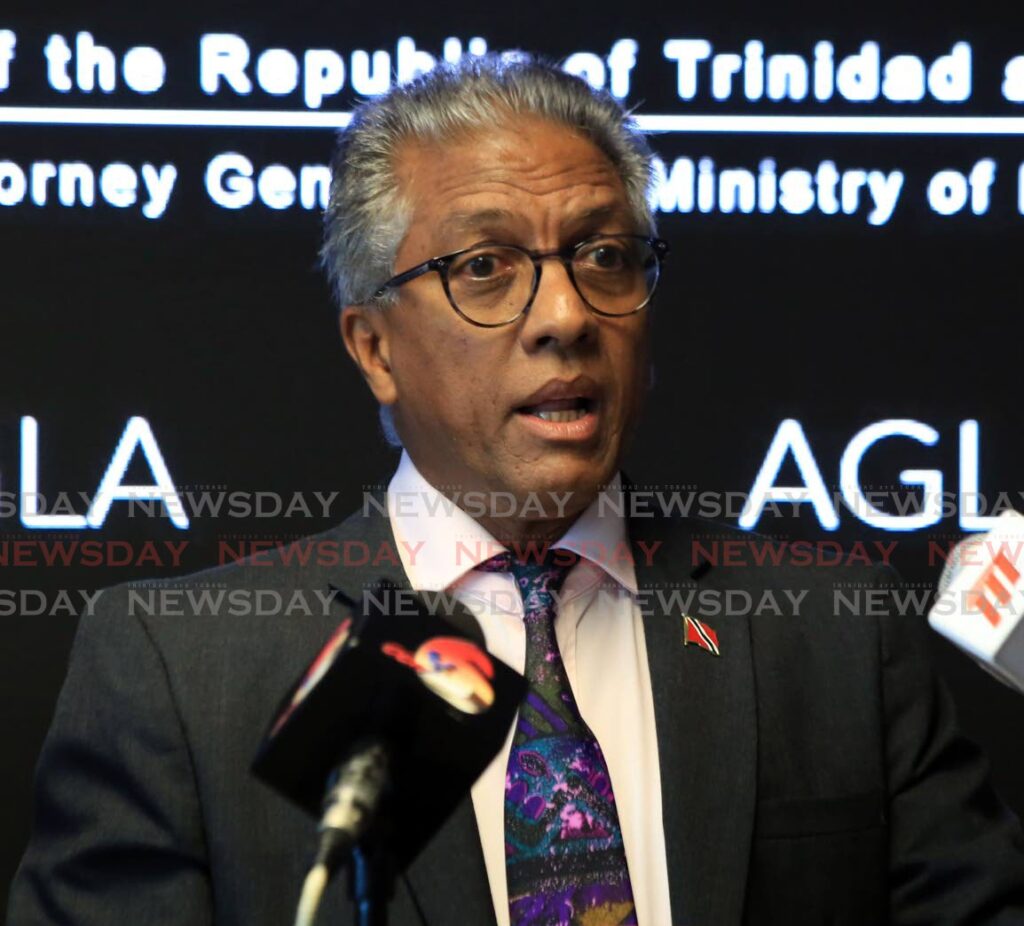Attorney General, Opposition agree: CoE Act needs overhaul

THE Attorney General and a senior opposition senator agree that the legislation governing Commissions of Enquiries (CoE) needs an overhaul to better serve the public.
Independent Senator Anthony Vieira piloted the motion in the Upper House on March 26. In supporting his motion, he quoted from a newspaper article which said successive CoEs cost the state over half a billion dollars without a single person being held accountable, arrested or charged.
"This motion calls on the Senate to consider the very important role public enquiries play in our constitutional arrangements, whether we are getting value for money and whether the process can be improved."
Entering the books in 1892, Vieira pointed out the CoE Act has only been amended a couple of times with the most recent being in 1976.
He said the primary issues plaguing the practice are that it is lengthy, costly and recommendations are rarely implemented. He said if these public enquiries are done properly, it can change attitudes, policies and practices. If not, he said, the public can lose trust.
"Lots of promise, little delivery. Is this an acceptable state of affairs?"
In retooling the Act, Vieira suggested guidance can be sought from a publication by the United Kingdom's Centre for Effective Dispute Resolution on public enquiries.
These included emphasising clarity of goals for the CoE, a stronger focus on victims' and participants' well-being and understanding, using innovative techniques to speed up the process, ensuring recommendations produced are valid and more likely to be implemented and capturing technique information from the CoE so lessons can be learnt for future enquiries.
Vieira said with the motion coming in the wake of the Paria CoE, which was laid in Parliament on January 10, "this is an opportune time to consider the value of public enquiries and whether they can be improved.
"The Paria enquiry produced 52 recommendations, whether any of them would be implemented or whether, as with enquiries in the past, those recommendations will fall on deaf ears? Time will tell."
Speaking on behalf of the government, Attorney General Reginald Armour agreed with Vieira's motion but with the disclaimer that his comments do not apply to the Paria CoE, which is now before the Director of Public Prosecution.
Armour agreed that the law was outdated and needed updating to balance cost and results, bring the length of time down, get witnesses to attend and get recommendations implemented.
He said in amending the law, particular attention will need to be paid to ensuring procedural fairness. However, he said the new legislation should not be so stringent that it does not allow commissioners flexibility to carry out their jobs effectively.
"In writing the procedural rules, we provide the outer framework of guidance but not make ourselves slaves to the written word."
The Attorney General suggested the legislation create a secretariat so there's an institution with expertise, records of past precedence and experience of previous enquiries that can assist with future enquiries. However, his suggestion came with a caveat: "I say this unapologetically, let that secretariat not be mired in the morass of the public service."
He commended Vieira for his motion and said he would invite the Independent Senator to give a brief to the Law Reform Commission on the matter.
Contributing to the debate, opposition senator Wade Mark also agreed with the motion, however, he had a more drastic recommendation.
"We may need to overhaul and get rid of the CoE Act because that has not worked. It has been a total failure," he said.
In its place, he suggested adopting the United States' model of having special prosecutors with more teeth to take legal action in matters.
"The special prosecutor must have the power. You (witnesses) don't come? Well, that's contempt. You have to come. This is serious business."


Comments
"Attorney General, Opposition agree: CoE Act needs overhaul"